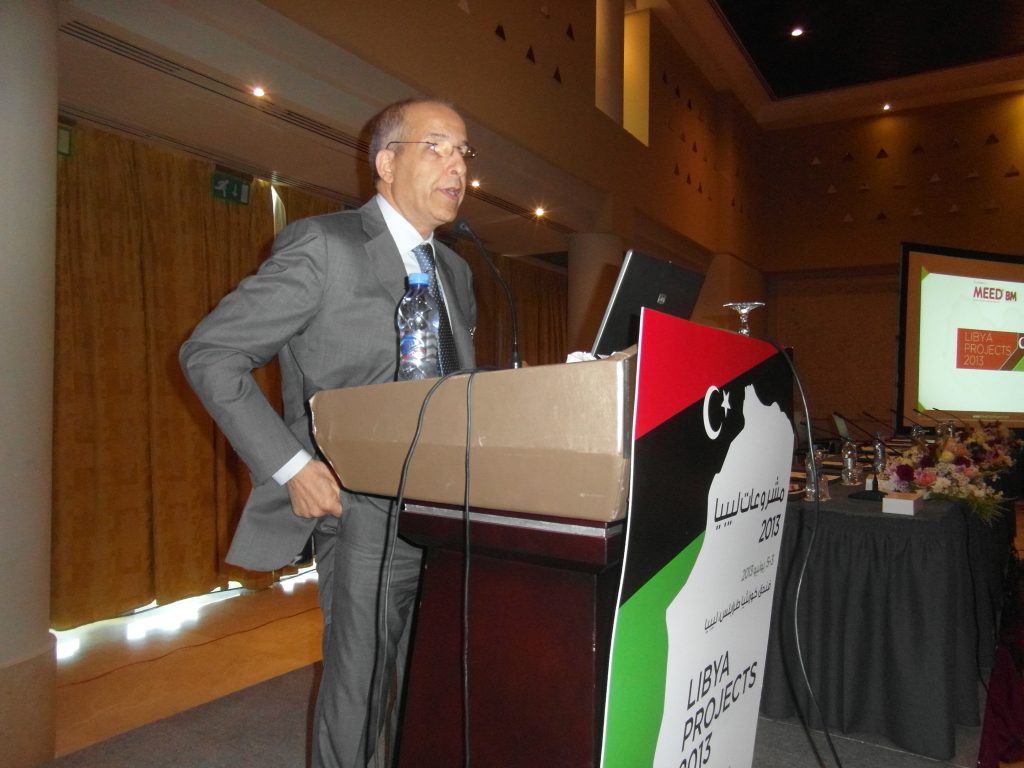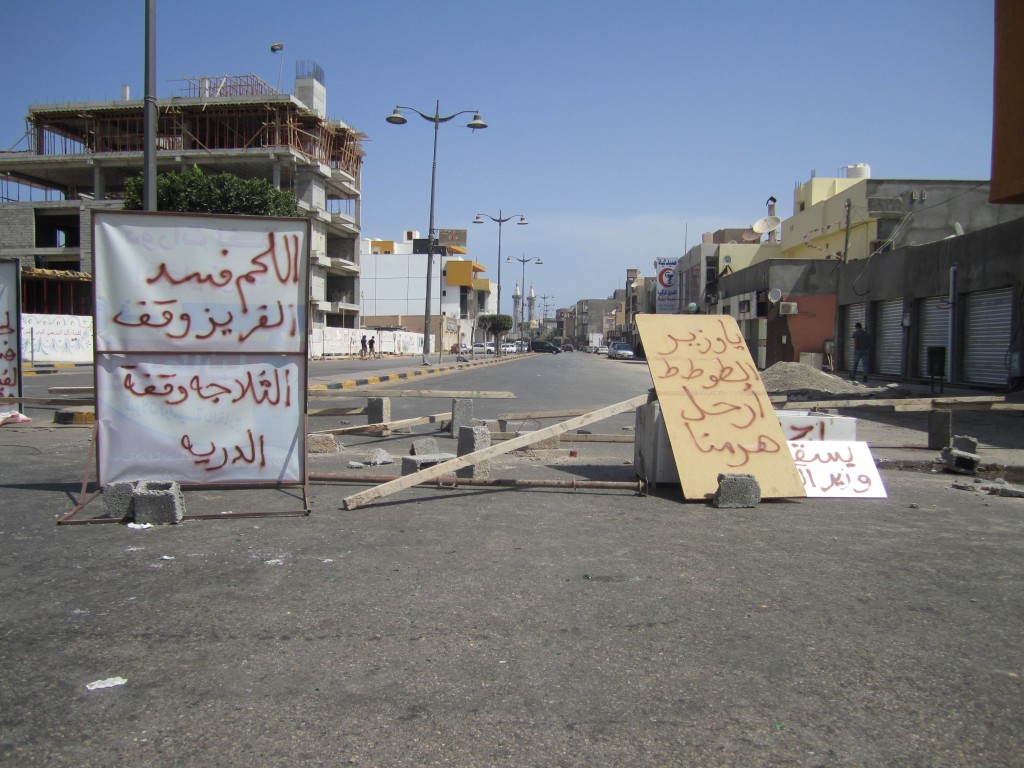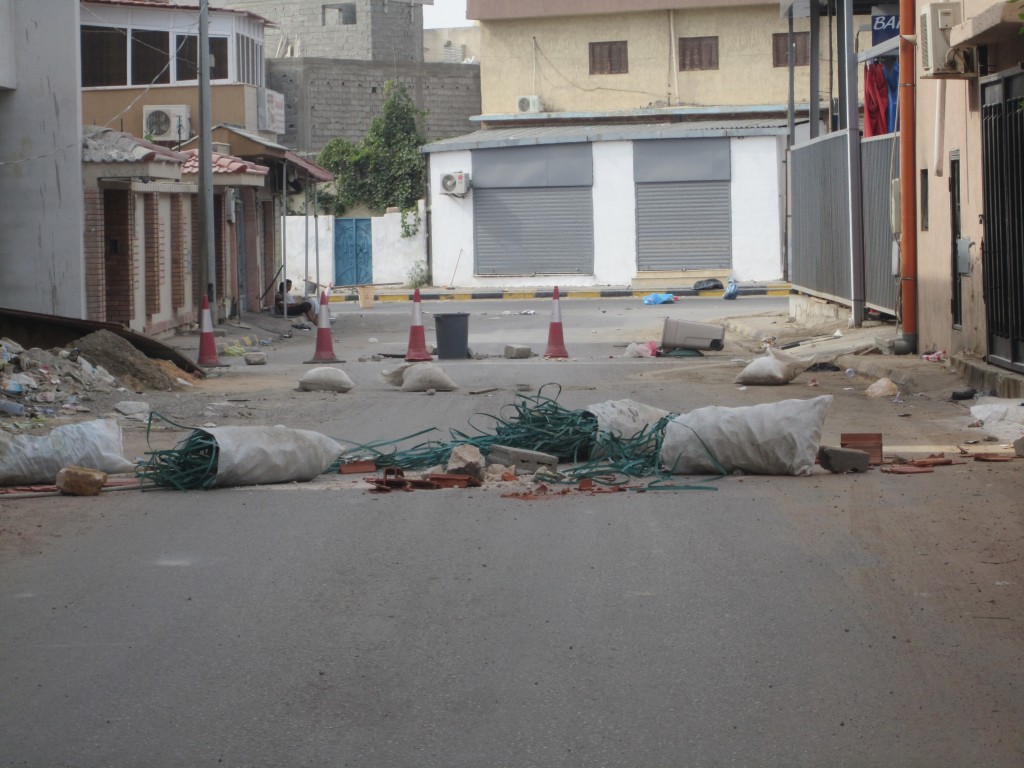Syria updates......
http://www.atimes.com/atimes/Middle_East/MID-04-230713.html
War against Iran, Iraq AND Syria?
By Pepe Escobar
Amidst the incessant rumble in the (Washington) jungle about a possible Obama administration military adventure in Syria, new information has come to light. And what a piece of Pipelineistan information that is.
Picture Iraqi Oil Minister Abdelkarim al-Luaybi, Syrian Oil Minister Sufian Allaw, and the current Iranian caretaker Oil Minister Mohammad Aliabadi getting together in the port of Assalouyeh, southern Iran, to sign a memorandum of understanding for the construction of the Iran-Iraq-Syria gas pipeline, no less.
At Asia Times Online and also elsewhere I have been arguing that this prospective Pipelinestan node is one of the fundamental reasons for the proxy war in Syria. Against the interests of Washington, for whom integrating Iran is anathema, the pipeline bypasses two crucial foreign actors in Syria - prime "rebel" weaponizer Qatar (as a gas producer) and logistical "rebel" supporter Turkey (as the self-described privileged energy crossroads between East and West).
The US$10 billion, 6,000 kilometer pipeline is set to start in Iran's South Pars gas field (the largest in the world, shared with Qatar), and run via Iraq, Syria and ultimately to Lebanon. Then it could go under the Mediterranean to Greece and beyond; be linked to the Arab gas pipeline; or both.
Before the end of August, three working groups will be discussing the complex technical, financial and legal aspects involved. Once finance is secured - and that's far from certain, considering the proxy war in Syria - the pipeline could be online by 2018. Tehran hopes that the final agreement will be signed before the end of the year.
Tehran's working assumption is that it will be able to export 250 million cubic meters of gas a day by 2016. When finished, the pipeline will be able to pump 100 million cubic meters a day. For the moment, Iraq needs up to 15 million cubic meters a day. By 2020, Syria will need up to 20 million cubic meters, and Lebanon up to 7 million cubic meters. That still leaves a lot of gas to be exported to European customers.
Europeans - who endlessly carp about being hostages of Gazprom - should be rejoicing. Instead, once again they shot themselves in their Bally-clad feet.
Want war? Here's the bill
Before we get to the latest European fiasco, let's mix this Pipelineistan development with the new Pentagon "discovery" - via the deputy director of the Defense Intelligence Agency (DIA), David Shedd, according to whom the proxy war in Syria may last for "multiple years". If that happens, bye-bye pipeline.
One wonders what those Pentagon intel wizards have really been doing since early 2011, considering they had been predicting Bashar al-Assad's fall every other week. Now they have also "discovered" that jihadis in the Syrian theater of the Jabhat al-Nusra and al-Qaeda in Iraq (AQI) mould are actually running the (ghastly) show. Shedd admitted there are "at least 1,200" disparate "rebel" factions/gangs in Syria, most of them irrelevant.
Attesting to the appalling average IQ involved in foreign policy debate in the Beltway, still this information had to be spun to justify yet another military adventure on the horizon - especially after President Barack "Assad must go" Obama declared he would authorize the "light" weaponizing of "good" rebels only. As if the harsh rules of war obeyed some Weapon Fairy Godmother high up in the sky.
Into the ring steps General Martin Dempsey, chairman of the Joint Chiefs of Staff. On the same day that Tehran, Baghdad and Damascus were talking seriously about the business of energy, Dempsey wrote to US senators of the John McCain warmongering variety that the US getting into yet another war would lead to "unintended consequences".
Dempsey wrote that weaponizing and training the "good" rebels (assuming the CIA has a clue who they are) would cost "$500 million per year initially", require "several hundred to several thousand troops" and risk weaponizing al-Qaeda-style jihadis, as well as plunging Washington, according to Dempsey's Pentagonese, into "inadvertent association with war crimes due to vetting difficulties."
In case the Obama administration caved in to the warmongers' favorite option - a no-fly zone - Dempsey also said "limited" air strikes would require "hundreds of aircraft, ships, submarines, and other enablers", to a cost "in the billions", and all that to achieve little else than a "significant degradation of regime capabilities and an increase in regime desertions".
Dempsey at least was frank; unlike Gaddafi in Libya, Bashar al-Assad's forces would not fold because of a no-fly zone. And nothing substantially would change because the Syrian government "relies overwhelmingly on surface fires - mortars, artillery, and missiles". And even a limited no-fly zone - what former State Department star Anne-Marie Slaughter euphemistically defined as a "no-kill zone" - would cost "over $1 billion a month". And who will be paying for all this? China?
Even with Dempsey playing god cop and sporting the voice of reason - something quite astonishing in itself; but anyway he's been to Iraq, and saw first hand the ass-kicking by a bunch of towelheads with second-hand Kalashnikovs - US pundits are still relishing the internal debate in the Obama administration over the "wisdom" of yet another war.
Round up all the Prada jihadis
And while the "wisdom" debate is slated to go on, the European Union decided to act; meekly bowing to US and Israel pressure, the EU - itself pressured by the UK and the Netherlands - blacklisted the armed wing of Hezbollah as a terrorist organization.
The pretext was the bombing of a bus carrying Israelis in Bulgaria in 2012. Hezbollah said it had nothing to do with it. Bulgarian investigators said positively yes; then maybe; and now they admit even circumstantial evidence is shaky.
So the pretext is bogus. This is the EU - after the despicable denying of overflying rights to the Bolivian presidential plane - once again meekly playing poodle, with the Brits and the Dutch trying to weaken Hezbollah just as it has staked its ground in the Syrian/Lebanese border and has actually fought those jihadis of the Jabhat al-Nusra and AQI kind.
As a graphic illustration of utter EU cluelessness - some might say stupidity - Britain, the Netherlands and France, especially, followed by the others, have just branded the organization that is fighting jihadis on the ground in Syria/Lebanon "terrorists", while the jihadis themselves get away with it. So much for European ignorance/arrogance.
So what's next? It's not far-fetched to imagine the EU totally forgetting about a pipeline that will ultimately benefit its citizens and issuing - under US pressure - a directive branding Iran-Iraq-Syria as a terrorist axis; lobbying for a no-fly zone applying to all; and recruiting jihadis all over for a Holy War against the axis, supported by a fatwa issued by Sheikh Yusuf al-Qaradawi. But first they would need Washington's approval. As a matter of fact, they might even get it.
| |
| At Least 49 Syrian Rebels Killed in Ambush Near Damascus |
| |
| Syrian Rebels Target Regime Supply Lines in North |
| Opposition Gets UN Meeting, Rebel Chief Won't Attend |
| Syria Opposition: Hezbollah Must Stand Trial |
| In Syria's South, Fears of a New Humanitarian Crisis |
| |
Egypt updates......
http://news.antiwar.com/2013/07/23/11-killed-in-egypt-as-gunmen-attack-anti-coup-protesters/
11 Killed in Egypt as Gunmen Attack Anti-Coup Protesters
Snipers Fire on Protesters in Cairo
by Jason Ditz, July 23, 2013
Unidentified gunmen have attacked protesters at Cairo rallies for the past two days,leaving at least 11 people killed and a large number of others wounded. The protesters, supporters of ousted President Mohamed Morsi, have promised to continue their demonstrations until he is released and the military junta steps down.
 Clashes have been frequent in Egypt, as protesters against the coup have regularly found themselves having down groups of junta supporters. The last two days have seen that violence step up from fist-fights to shootings,with reports of snipers on the rooftopstargeting the crowds.
Clashes have been frequent in Egypt, as protesters against the coup have regularly found themselves having down groups of junta supporters. The last two days have seen that violence step up from fist-fights to shootings,with reports of snipers on the rooftopstargeting the crowds.
Since the July 3 coup, over 100 people have been killed during demonstrations, with the bulk of them killed in a July 8 military attack on a sit-in near Republican Guard headquarters, which killed 55. The military insisted they killed the protesters in “self-defense” and have vowed to charge protest leaders with “incitement.”
All of this is part of a trend back to the authoritarian days in Egypt, with the military brooking no dissent and Al-Jazeera, the popular regional news broadcaster, accusing the new junta of a campaign of intimidation against its staff for being perceived as too friendly to the Morsi government.
Forgotten Libya updates......
Central Bank of Libya Governor to be remove
By Sami Zaptia.
Tripoli, 23 July 2013:
In an unheralded move, the GNC has announced that it is to appoint a new Central Bank of Libya Governor and Deputy Governor. The announcement came out of the blue and appeared without much prior GNC or media debate yesterday on the GNC’s website.
“The GNC Budget, Planning and Finance Committee announce the invitation of applications for the posts of the Central Bank of Libya (CBL) Governor and the CBL Deputy Governor”, the post on the GNC’s webpage read.
“These vacancies will be open between, Sunday, 22 July and Wednesday, 7 August 2013. Candidates can apply during working hours during the two weeks from the date of this announcement”.
“Applicants must submit their personal resume and fill-in the special application form prepared by the Committee which is published on its official website at; www.gnc.gov.ly”.
“Applications are received during working hours at the Committee’s Headquarters at Palace No.19, Hospitality Palaces, GNC Headquarters. Applications can also be submitted by email to www.gnc.gov.ly”, the statement concluded.
The statement gives no further information regarding this move and will certainly lead to much unwarranted speculation as a result of its brevity.
It in no way indicates, for example, if the CBL Governor, Saddek Elkaber, has resigned, retired, is being sacked or is being removed by the Political Isolation Law.
Elkaber has had his critics, mainly on social networks. The most common accusation is that he had worked during the Qaddafi regime. However, despite the many unwarranted accusations, no one has come up with any evidence of impropriety by him.
With the passage of time, it was thought that he had weathered the storm, having survived under two de facto heads of states: Mustafa Abdul Jalil and Mohamed Magarief.
However, it seems that the GNC under the new leadership of Nuri Abusahmain has, for yet to be disclosed reasons, decided that it was time to have a change of leadership at the top of the CBL.
Zuetina oil and gas exports still suspended
By Seraj Essul and Tom Westcott.
Tripoli, 24 July 2013:
Zuetina Oil Company has resumed production of oil and gas but is holding back from exporting any hydrocarbons until the latest wave of protests at the port has finished.
Work at the Zuetina port and oil fields was disrupted by disgruntled workers and oil field guards striking about pay and conditions at the end of June. The loading of vessels was suspended then for more than a fortnight.
“We started loading two waiting ships on 10 July,” mechanical maintenance head at Zuetina, Hamad Al-Agouri, told the Libya Herald, “but the loading of the second ship was interrupted by protestors on 15 July.” No vessels have been loaded since.
These protestors, a different group from the strikers who previously brought Zuetina production to a standstill, claim to have been promised jobs by the government which have not been forthcoming.
Agouri said that although these protestors are fewer than ten in number, they are the main reason why exports have not recommenced.
“We are not loading ships because we don’t want this to be interrupted again by circumstances we can’t control,” said Agouri. “If we start pumping the oil and gas and it gets stopped, this causes problems in the system and will cost a lot of money to fix.”
He added that, after the recent disruptions, workers now wanted the company to ensure the port was properly protected. “We are now demanding that the port be secured to ensure there will be no further security or technical issues,” Agouri said.
There is one ship at the port at the moment, which has been waiting for two days.
Tripoli roads blocked in protest over power cuts
By Tom Westcott and Ashraf Abdul Wahab.
Tripoli, 23 July 2013:
Tripoli residents, angered by more than 16 hours without electricity, have blockaded a major junction until their power is restored.
Makeshift roadblocks have been in place since early this morning at the Ras Hassan junction between Ben Ashur and Ras Hassan. Handwritten signs complained of 16-hour outages and said all the frozen meat bought for Ramadan had defrosted and gone rotten.
“The road is blocked until the electricity comes back on,” another sign read.
Officials and engineers from the General Electricity Company of Libya (GECOL) arrived at Ben Ashur at around 12.30 pm to investigate the problem.
One engineer told the Libya Herald that the Ben Ashur power substation was not working because of a power surge. This, he said, happened after the electricity was switched back on following a “normal” three-hour power cut.
The power surge damaged equipment, causing another, longer outage.
“This happens all the time and could happen in any area,” the engineer said. He added that the problem was now being fixed.
Most shops in the area were closed this morning, unable to function without electricity. A few mechanics sat in the doorways of their darkened workshops, waiting for the electricity to return.
The nearby Swiss-Libyan medical centre was fully-functioning, running lifts, air-conditioning and vital medical equipment off its own generator. Medical Director Mohamed Roujbani told the Libya Herald that power cuts in the area seemed to be much worse than this time last year.
Even side roads leading to the junction were blocked (Photo: Tom Westcott, Libya Herald)



No comments:
Post a Comment